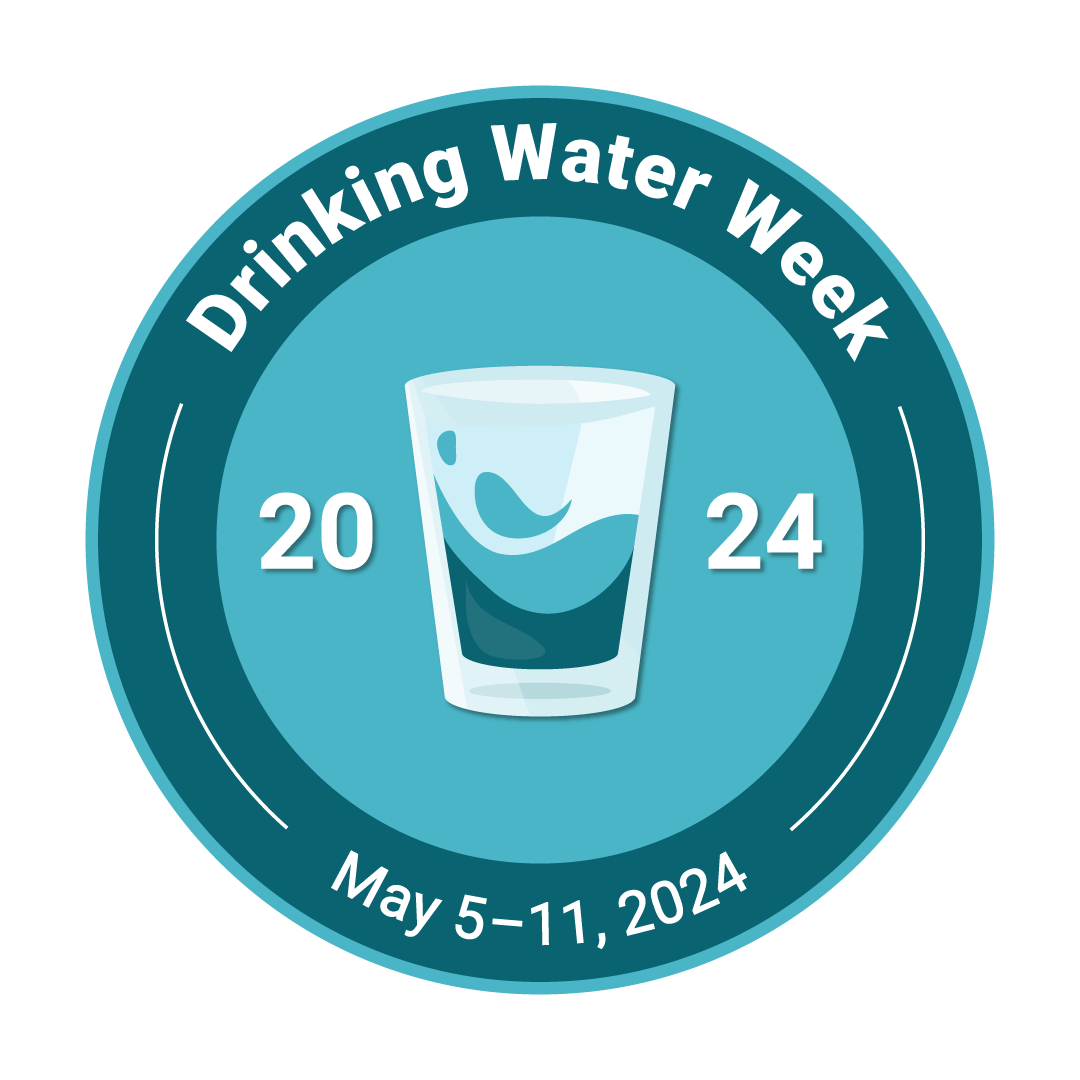The web Browser you are currently using is unsupported, and some features of this site may not work as intended. Please update to a modern browser such as Chrome, Firefox or Edge to experience all features Michigan.gov has to offer.
Learn more about your water during Drinking Water Week
May 07, 2024
This Drinking Water Week, take the opportunity to learn about your local drinking water. Discover its journey from its source to your faucet and the efforts water professionals and you can take to ensure high water quality. Understanding our water is the first step to conserving and protecting it.

This year, Michigan recognizes national Drinking Water Week from May 5 to 11. Drinking Water Week was established by the American Water Works Association (AWWA) and partners to recognize the vital role water plays in our daily lives. This year also marks a historic milestone – the 50th anniversary of the Safe Drinking Water Act (SDWA). EGLE’s Office of the Clean Water Public Advocate (OCWPA) collaborates with other state divisions and agencies in using this week to educate the public about their drinking water.
“There are actions all of us can take to support healthy drinking water, from protecting the source to replacing old plumbing and fixtures in the home,” said Kris Donaldson, EGLE’s Clean Water Public Advocate.
Information and resources at Michigan.gov/DrinkingWaterWeek can help people learn where their drinking water comes from, what’s in it, who to contact with concerns, and actions they can take to support healthy drinking water in their homes. Resources and activities for children and educators are also available, including information on EGLE’s Lending Station, where models and other hands-on demonstration resources can be borrowed.
During this week, Michigan also proclaims Tuesday as Private Residential Well Awareness Day to bring attention to the 2.6 million Michiganders who depend on private wells for their drinking water, as well the responsibilities of well owners to properly maintain and test their wells. Michigan has over one million private residential wells. Drinking Water Week highlights important resources about well maintenance and testing found on the Michigan Department of Health and Human Services (MDHHS) Care for MiWell website.
Knowing your water supply is key to learning about your water quality and determining who to contact with questions. Depending on your water supply (view supply types), your local health department or water supplier is likely your best resources for answering questions about your water.
Water is likely supplied to your home from either a public water supply or a private well and this determines when your water is tested and for which contaminants.
- If you get a bill for your water, it is likely that you are receiving water from a community public water supply. Community water supplies are required to routinely test the water for certain contaminants. Test results for detected contaminants and other information about local water quality can be found in your water supplier’s Consumer Confidence Report (CCR), also known as an Annual Water Quality Report. CCRs may be delivered in different ways, such as a paper copy or via a link within your bill. If you’re not sure where to access yours, contact your local water supplier. Your local water supplier should also be your first call to answer questions or address concerns. If you are on another type of public water supply, testing requirements can vary. Your landlord, community association, water supplier, or local health department can help you find information.
- If you have a private residential well, your well and its water are ultimately your responsibility. There are things that you should do to help protect your family’s health and ensure quality tap water. Most contaminants in water have no taste, color, or smell. The only way you might know if you have a problem is to test your drinking water using a certified laboratory. Check with your local health department to learn if there are any drinking water concerns in your area and what testing is recommended. MDHHS recommends annual testing for Coliform Bacteria and E. coli, nitrate, and nitrite and testing every three to five years for arsenic, copper, and lead. If you live near a potential PFAS source, or if you are unsure, check out EGLE’s PFAS Sites and Areas of Interest Interactive Map and consider testing for PFAS. Call MDHHS at 800-648-6942 to see if your home is in an area that is under investigation for PFAS, in which case MDHHS may be able to help with testing.
For more information about Drinking Water Week and additional resources, visit Michigan.gov/DrinkingWaterWeek.